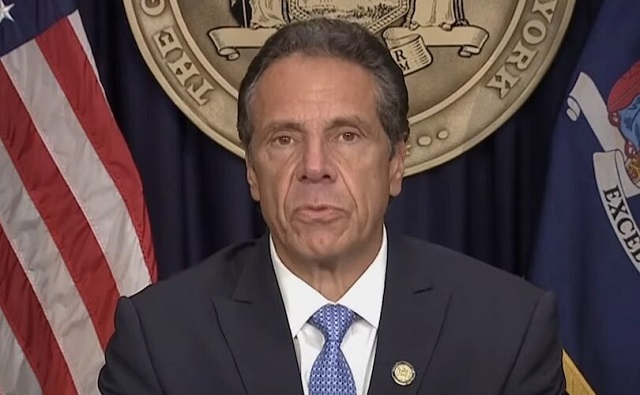Energy
How climate activists harm Canadian energy security
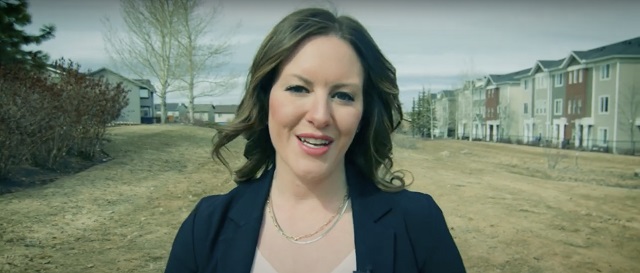
 From the Daily Caller News Foundation
From the Daily Caller News Foundation
By NICK POPE
Canadian Official Reveals Damage Eco-Activists Have Wreaked On Great White North’s Energy Security
Rebecca Schulz — the minister of environment and protected areas of Alberta, Canada — sat down with the Daily Caller News Foundation at the Canadian embassy in Washington, D.C. to discuss how climate activists, along with the country’s left-wing government, have hampered Canada’s energy security.
Alberta is a province in Western Canada that is known for its abundant natural resources, especially oil and natural gas. However, the federal government in Ottawa — led by liberal Prime Minister Justin Trudeau — has moved to restrict development in the province, harming the many blue-collar Canadians who rely on affected industries to make a living, Schulz explained to the DCNF.
“We have seen, over the last number of years, the activist, radical left starting to shape policy in a way that is, I think, very concerning, not only for just the basic needs of everyday people when it comes to safe, affordable, reliable energy, but I think, when it comes to to energy security,” Schulz told the DCNF.
General Manager working on the Keystone XL pipeline says that “hundreds of guys” have already been laid off in Wisconsin as a result of Joe Biden's executive order halting construction of the pipelinepic.twitter.com/TMOf80ph2i
— Daily Caller (@DailyCaller) January 25, 2021
“Certainly, we have a prime minister that is completely just bending to the activist base and ignoring, I think, the very real concerns of everyday commonsense as Canadians, and that’s a problem,” Schulz told the DCNF, referencing Trudeau. Later in the interview, Schulz predicted that Canadian voters will “vastly reject” Trudeau when they next head to the polls, in large part due to “the woke, ideological policies” that his government has pursued.
In Canada, one such official with deep ties to the climate activist movement shaping policy is Minister of Environment and Climate Change Steven Guilbeault. A former Greenpeace activist who once scaled Toronto’s iconic CN Tower and climbed on the roof of a government official’s private residence to install solar panels in acts of protest, Guilbeault has stated that he does not seek to implement a “secret agenda” of policies aligned with his activist past while in office, according to CBC, a Canadian news outlet.
Notably, the Biden administration counts numerous former activists among its ranks, including Bureau of Land Management (BLM) Director Tracey Stone-Manning, who was connected to radical eco-activists concocting a tree spiking plot in Idaho in the late 1980s. BLM manages federally-controlled lands for uses like energy production and livestock grazing.
“It’s really problematic because it is completely ideologically driven and devoid of common sense and the realities that people are facing every single day. And I think, you know, of course, people do care about the environment. I, of course, as minister of the environment, I care that we’re doing the right thing for the environment that we’re leaving,” Schulz continued. “You know, the places that we live, and where we develop our resources from, we’re maintaining that for future generations. But I also know that we could not survive a day without oil and gas, or products made from oil and gas and petrochemicals. And that fact isn’t changing. That, in fact, is growing so, I think it’s pretty concerning that they are also then trying to essentially stifle any opinions or statistics or facts that don’t support their narrative.”
Canada isn't planning on pulling their weight https://t.co/QKdZdoCe4G
— Daily Caller (@DailyCaller) April 20, 2023
Canada is one of America’s biggest energy suppliers, providing about 52% of all gross oil imports in 2023 and exporting nearly three trillion cubic feet of natural gas to the U.S. in 2022, according to the Canadian Energy Centre. Most of the fuel comes to America via cross-border pipelines, though some is also delivered by rail or by sea, according to a 2021 report commissioned by the American Petroleum Institute.
The Keystone XL pipeline, a major project that would have helped bring oil from Alberta to refineries along the coast of the Gulf of Mexico in the U.S., was set to be a new expansion to the systems that bring Canadian energy to America.
However, activists waged a major pressure campaign against the project, and its developers ultimately scuttled it in June 2021 after the Biden administration nixed a crucial permit and generally showed minimal enthusiasm for the project upon entering office, according to The Associated Press.
“Projects like that, of that size and scope, obviously take a significant amount of political will,” Schulz said of Keystone XL. “And I think that was a hugely disappointing decision, because we know that market access matters for energy security and meeting the needs of, I would say, Canadians and Americans, and people around the world.”
Notably, Brent Sadler — a 26-year veteran of the U.S. Navy who now works as a senior research fellow for naval warfare and advanced technology at the Heritage Foundation — agrees with Schulz’s assessment that Keystone XL would have been a positive development for North American energy security.
In a recently-published report assessing American energy security in light of the Chinese Communist Party’s (CCP) geopolitical ambitions, Sadler argued that policymakers impose “unnecessary restraints” on cross-border energy interconnection, and that security interests would be better served if they instead “get out of the way” and “permit cross-border energy infrastructure projects such as the Keystone XL pipeline.”
For now, Schulz will turn much of her focus to the Trudeau government’s proposed emissions cap for the oil and gas industry, which could see the government require energy producers to slash their emissions by about 37% relative to 2022 levels by 2030, according to Reuters. Its opponents — many of whom are located in Alberta — are characterizing the policy as a thinly-veiled production cap that will severely hurt the province’s workers and regional economy.
If finalized, the policy “would kill thousands of jobs, I would say tens of thousands of jobs, just directly in conventional oil and gas, not to mention what we’re seeing in oil sands and, of course, other related industries,” Schulz told the DCNF. “We just have a federal government that doesn’t look at any socioeconomic data on the impacts that their policy would have … No competent, responsible government would see those numbers and move ahead with that cap, but that is, in fact, what our federal Liberal government is doing in Canada.”
Business
Federal carbon tax a hot issue today
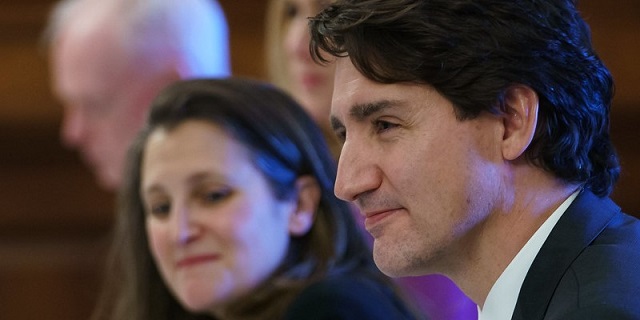
From Resource Works
When it comes to Canada and carbon taxes, times have certainly changed in very little time.
We had wondered how long Ottawa’s national carbon-tax system would last when, after implementing it as a mandatory national scheme, the feds suddenly announced an exemption for home heating oil in Newfoundland and Labrador.
Pressed by NL Premier Andrew Furey, a Liberal, and Liberal MP Ken McDonald, Prime Minister Justin Trudeau announced the exemption last October, saying it would help Atlantic Canadians with the cost of living.
The exemption would last until March 31, 2027. And for NL households that burn oil, the feds said it would mean an average $250 annual savings.
Alberta and Saskatchewan saw the exemption as unmitigated vote-buying politics, and they weren’t alone.
On Jan. 1, 2024, Saskatchewan stopped collecting the federal carbon tax on natural gas used for home heating in that province. Premier Scott Moe declared that this was in response to Ottawa’s “unfair” exemption for Newfoundland and Labrador.
“Trudeau has provided a carbon tax exemption on home heating for families in one part of the country, but not here. It’s unfair, it’s unacceptable.”
Saskatchewan went on to challenge the exemption, in federal court, on constitutional grounds, and won a temporary injunction. Later, pending a final court decision, Saskatchewan and Ottawa agreed that the province would be responsible for “50 percent of the outstanding tax amounts.”
But Ottawa’s carbon tax (oops, sorry, Ottawa likes to call it “carbon pricing” and “carbon pollution pricing”) has now run into new political trouble.
First, national NDP leader Jagmeet Singh, who had voted for the carbon tax, pulled out of a deal supporting Trudeau’s Liberal Party in government.
Singh then went on to slam Trudeau’s approach of exempting fuels in favored geography. And he said the NDP would come up with a system that doesn’t “put the burden on the backs of working people.”
Then, British Columbia Premier David Eby, long a strong supporter of the carbon tax — but facing an election on Oct. 19 — suddenly declared: “I think it’s critical to also recognize that the context and the challenge for British Columbians have changed. A lot of British Columbians are struggling with affordability.
“If the federal government decides to remove the legal backstop requiring us to have a consumer carbon tax in British Columbia, we will end the consumer carbon tax in British Columbia.”
Would Prime Minister Trudeau remove the backstop requirement?
Apparently not. Instead, Environment and Climate Change Canada is looking to run a $7-million “climate literacy and action” advertising campaign to promote the carbon tax and the quarterly rebates that many Canadians receive under it.
And the prime minister, earlier this year, declined to meet the premiers of Alberta, Ontario, Saskatchewan, New Brunswick, and Newfoundland and Labrador on the issue.
“The carbon tax has contributed to increasing stress and financial pain for millions of Canadians,” Alberta Premier Danielle Smith wrote to the prime minister.
Ontario Premier Doug Ford wrote: “While we all have a role in protecting the environment, it cannot be done on the backs of hardworking people.”
But Trudeau turned down the call for a meeting: “We had a meeting on carbon pricing and every single premier came together to work on establishing a pan-Canadian framework on climate change years ago.
“And part of it was that there would be a federal backstop to make sure that pollution wasn’t free anywhere across the country.”
Whether the carbon tax has “worked” or not to reduce pollution is an open question. Supporters say yes. Opponents say no.
A poll late last year found that Canadians were feeling slightly more confident in the carbon tax’s effectiveness at combating climate change — but uncertainty was still high.
But the Liberal government is already getting a message from voters — having lost in two recent by-elections in Manitoba and Quebec, and in an earlier one in a “safe seat” in Ontario (Toronto-St. Paul’s).
In the Quebec one on Monday, the Liberals lost their longtime safe seat of LaSalle—Émard—Verdun to the NDP, by just over 200 votes. It had been a Liberal stronghold for years, won by more than 20 percent of the vote in previous campaigns.
The next federal election will take place on or before October 2025, and Trudeau’s opponents have already been loudly cranking up “Axe the Tax” campaigns.
And that means the carbon tax.
Alberta
RBC boss says the U.S. needs Canada to supply oil and gas to Asia for energy security
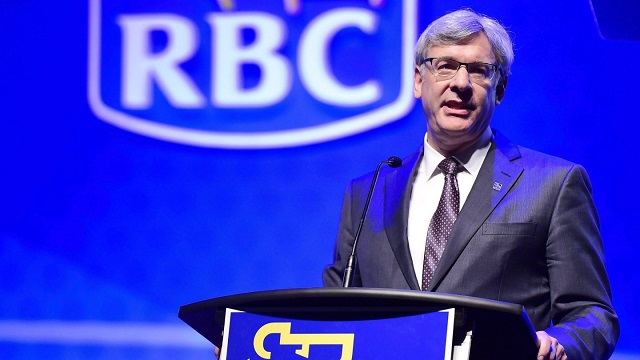
From the Canadian Energy Centre
By Deborah JaremkoDave McKay sees the opportunity to ‘lead on both sides’ with conventional energy and cleantech innovation
Despite the rise of “Buy American” policy, the CEO of Canada’s biggest company says there are many opportunities to improve Canada’s sluggish economy by supporting the United States.
Near the top of the list for RBC boss Dave McKay is energy – and not just the multi-billion-dollar trade between Canada and the U.S. The value of Canada’s resources to the U.S. stretches far beyond North America’s borders.
“Canada has to get in sync and create value for our largest trading partner,” McKay told a Canadian Club of Toronto gathering on Sept. 10.
Security, he said, is one of America’s biggest concerns.
“Energy security is a big part of overall security…As we think about these power structures changing, the U.S. needs us to supply Asia with energy. That allows the United States to feed energy to Europe.”
He said that for Canada, that includes oil exports through the new Trans Mountain pipeline expansion and natural gas on LNG carriers.
“Particularly Asia wants our LNG. They need it. It’s cleaner than what they’re using today, the amount of coal being burned…We can’t keep second-guessing ourselves,” McKay said.
Asia’s demand for oil and gas is projected to rise substantially over the coming decades, according to the latest outlook from the U.S. Energy Information Administration (EIA).
The EIA projects that the region’s natural gas use will increase by 55 per cent between 2022 and 2050, while oil demand will increase by 44 per cent.
With completion of the Trans Mountain expansion in May, Canada’s first major oil exports to Asia are now underway. Customers for the 590,000 barrels per day of new export capacity have already come from China, India, Japan and South Korea.
Canada’s long-awaited first LNG exports are also on the horizon, with first shipments from the LNG Canada terminal that could come earlier than expected, before year-end.
According to the Canada Energy Regulator, LNG exports from the coast of British Columbia could rise from virtually nothing today to about six billion cubic feet per day by 2029. That’s nearly as much as natural gas as B.C. currently produces, CER data shows.
But the federal government’s proposed oil and gas emissions cap could threaten this future by reducing production.
Analysis by Deloitte found that meeting the cap obligation in 2030 would result in the loss of about 625,000 barrels of oil per day and 2.2 billion cubic feet of natural gas per day.
This could wipe out significant sales to customers in the United States and Asia, without reducing demand or consumption.
McKay said the “massive complexity” around climate rules around the world and the lack of a cohesive path forward is slowing progress to reduce emissions.
Canada has opportunities to advance, from conventional energy to critical minerals and cleantech innovation, he said.
“We have to continue to leverage our resources…We can lead in clean tech, but in the meantime, there is an opportunity to get more carbon out of the economy sooner,” he said.
“We are in a race. Our planet is heating, and therefore we have to accept there can be transitionary energy sources.”
-

 COVID-192 days ago
COVID-192 days agoCanada approves Moderna’s latest experimental COVID shot starting after 6 months old
-
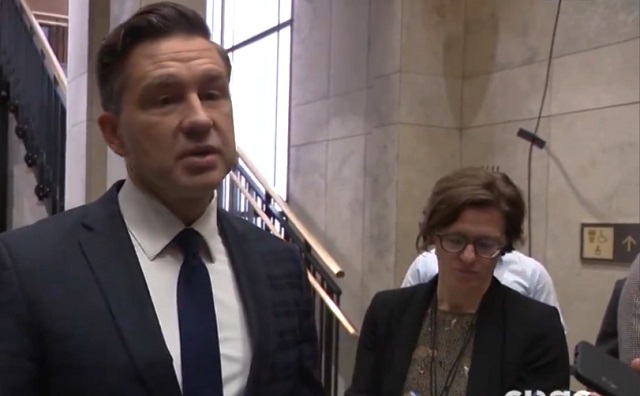
 National2 days ago
National2 days agoConservatives plan non-confidence vote against Trudeau gov’t next week, setting up possible fall election
-
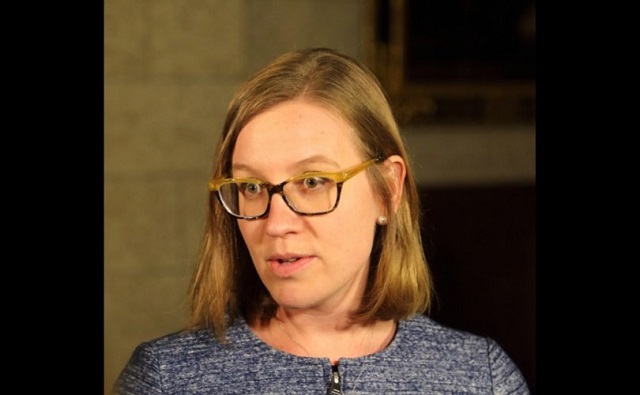
 National1 day ago
National1 day agoLiberal House Leader tells gov’t-funded media they must ‘scrutinize’ Conservatives
-

 Daily Caller1 day ago
Daily Caller1 day agoEast Anglia educated environmental scholar says it’s time to “Scrap Green Energy Handouts Once And For All”
-

 Daily Caller2 days ago
Daily Caller2 days agoUnion Bigwigs Decline To Endorse Anyone For President Despite Rank-And-File Members Overwhelmingly Backing Trump
-

 Business1 day ago
Business1 day agoFeds blow $2.7 million on global film festivals
-

 conflict1 day ago
conflict1 day agoSecond Wave Of Blasts Sweep Through Lebanon As Hezbollah Walkie-Talkies Suddenly Explode
-
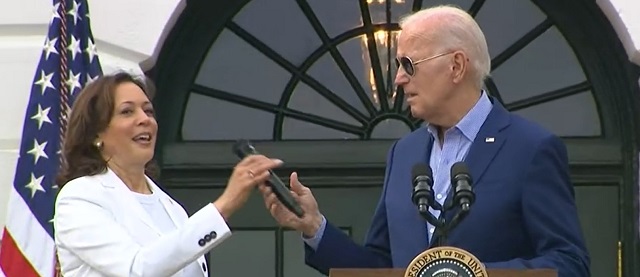
 Automotive1 day ago
Automotive1 day ago‘Gross Overreach’: Energy Groups Urge Congress To Throw Biden-Harris Admin’s ‘EV Mandate’ Overboard





